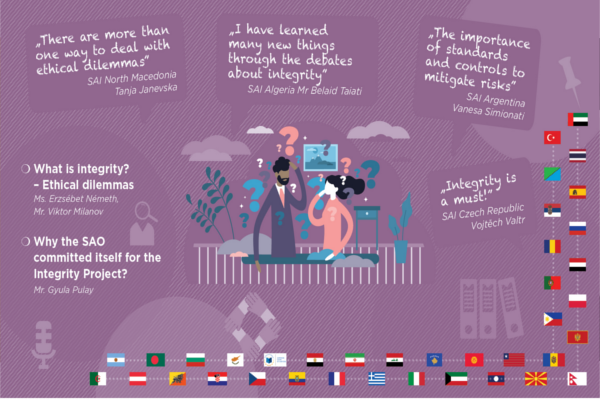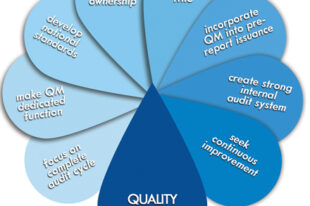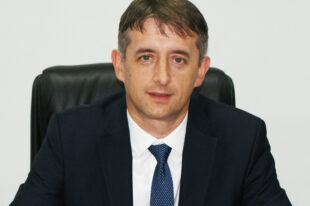SAO Hungary Holds International Integrity Seminar
From February 11-26, 2021, SAO held its 8th International Integrity Seminar. Approximately 90 participants from SAIs in nearly 40 countries—the largest number of participants so far—attended the two-week-long knowledge-sharing event. The aim of the masterclass, which was held online due to the COVID-19 pandemic, was to foster a culture of integrity and transparency within government entities through the sharing of both domestic and international best practices. The seminar focused on the potential use of artificial intelligence to prevent corruption, as well as on the scientific requirements for reliably measuring corruption.
The opening conference began with a video message from SAO President László Domokos, in which he discussed the organization’s role in disseminating a culture of integrity and emphasized the heightened importance of preventing corruption during the current crisis. Since the outbreak of the pandemic, the majority of SAO’s audits have focused on assessing the integrity of public sector organizations. President Domokos also pointed to the legal requirements for public sector organizations, including defining ethical principles, developing integrated risk management, and using digitization tools. The seminar’s opening conference was followed by an e-course and live workshop, each of which lasted a week.
SAO Hungary Supports Municipalities in integrity efforts
For the first time, Hungary’s State Audit Office (SAO), the country’s Supreme Audit Institution (SAI), assessed the integrity of all local governments and offices, their protections against corruption, and their regulatory environments. This comprehensive assessment, which involved 3,197 municipalities and 1,284 local municipal offices, encouraged compliance with regulations and facilitated more efficient performance during the COVID-19 pandemic. SAO rated municipalities on their risk of corruption, with 1 representing the highest and 5 the lowest risk.
SAO President László Domokos sent a letter communicating the results of the assessment to the leader of each municipality. He advised municipalities that received a rating of less than 5 of ways in which they could improve their transparency and accountability in the use of public funds. He also described the risks posed by the lack of compliance with regulations and encouraged local leaders to address these issues.
International organizations like the United Nations and the Organization for Economic Cooperation and Development, as well as SAO, have found that the COVID-19 pandemic has heightened the risk of corruption and of non-compliance with regulations. This means that SAO’s assessment is providing support to municipalities and their leaders when it is most needed.






